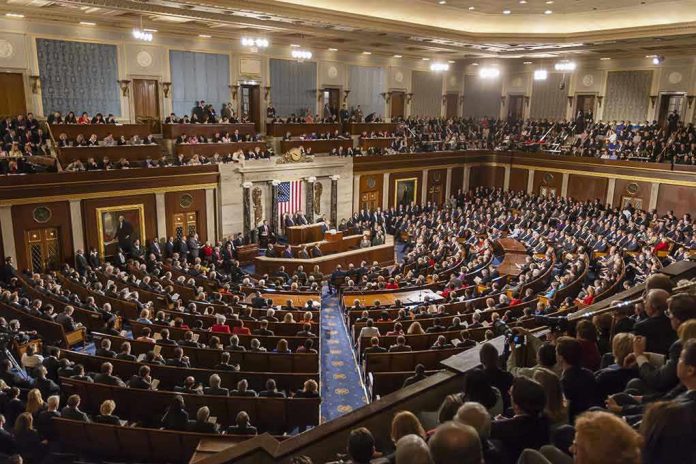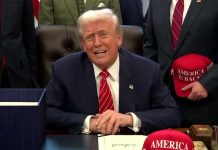
Ghislaine Maxwell is attempting to bargain with Congress for immunity before she spills the beans on Jeffrey Epstein’s criminal empire.
At a Glance
- Maxwell seeks immunity and advance questions in exchange for testimony.
- Congressional subpoena requires her deposition by August 11, 2025.
- Maxwell’s conditions include delaying testimony until her appeal is resolved.
- Trump administration involved in facilitating document release for testimony.
Maxwell’s Bold Demands
Ghislaine Maxwell, currently behind bars, is playing a high-stakes game with Congress. Subpoenaed to testify about her notorious involvement with Jeffrey Epstein, she’s demanding immunity and advance questions before she utters a word. Her audacious terms include delaying the deposition until her ongoing legal appeals are resolved. Maxwell’s legal team argues that without these guarantees, she risks further criminal exposure in what they describe as a “politically charged environment.” The deposition is slated for August 11, 2025, at FCI Tallahassee.
While some may view her demands as a stall tactic, others might see it as a shrewd legal move. The House Oversight Committee, led by Chairman James Comer, is in the thick of it, seeking Maxwell’s testimony as part of a broader investigation into Epstein’s criminal activities and potential government mishandling. But what message does it send if Congress bends to the whims of a convicted felon?
The Political Chess Game
President Trump has directed the Attorney General to release grand jury testimony related to Epstein, a move that underscores the high stakes of this political chess game. This isn’t just about Maxwell’s testimony—the implications reach far and wide. With Trump’s involvement, the political interest intensifies, drawing attention not only to Epstein’s dark network but also to how federal documents and investigations have been managed.
The Department of Justice is cooperating with Congress to facilitate Maxwell’s deposition, but the ball is in Congress’s court to decide whether they will meet Maxwell’s demands. Her attorneys formally requested immunity, advance questions, and a delay until the Supreme Court decides on her appeal. This scenario raises the question: should Congress negotiate with someone who has been convicted of such heinous crimes?
The Stakes for Justice and Transparency
This case is a litmus test for transparency and justice. Victims and advocacy groups are watching closely, demanding accountability and closure. As the House Oversight Committee pushes for transparency, the public is left to wonder if Maxwell’s demands will be met, potentially setting a precedent for other convicted individuals called to testify before Congress.
For Epstein’s victims, this isn’t just about Maxwell’s testimony—it’s about justice. The victims deserve closure and a full account of what transpired within Epstein’s sordid world. Yet, granting immunity to Maxwell might deny them the justice they seek. It’s a complex balance between uncovering the truth and ensuring justice prevails.
Implications for Future Congressional Testimonies
The outcome of this scenario will have far-reaching implications. If Maxwell testifies, her revelations could shed light on Epstein’s network and potential government failures. However, if Congress grants her terms, it might set a dangerous precedent for future testimonies involving convicted individuals. The integrity of congressional investigations could be compromised if Maxwell receives advance questions, undermining the process meant to uncover the truth.
The justice system is under the microscope, with public trust at stake. How Congress handles this situation could influence future investigations and the interpretation of legal protections for congressional witnesses. As the clock ticks towards August 11, 2025, the world watches to see if Congress will stand firm or concede to Maxwell’s demands.
Sources:
House Oversight Committee Press Release




